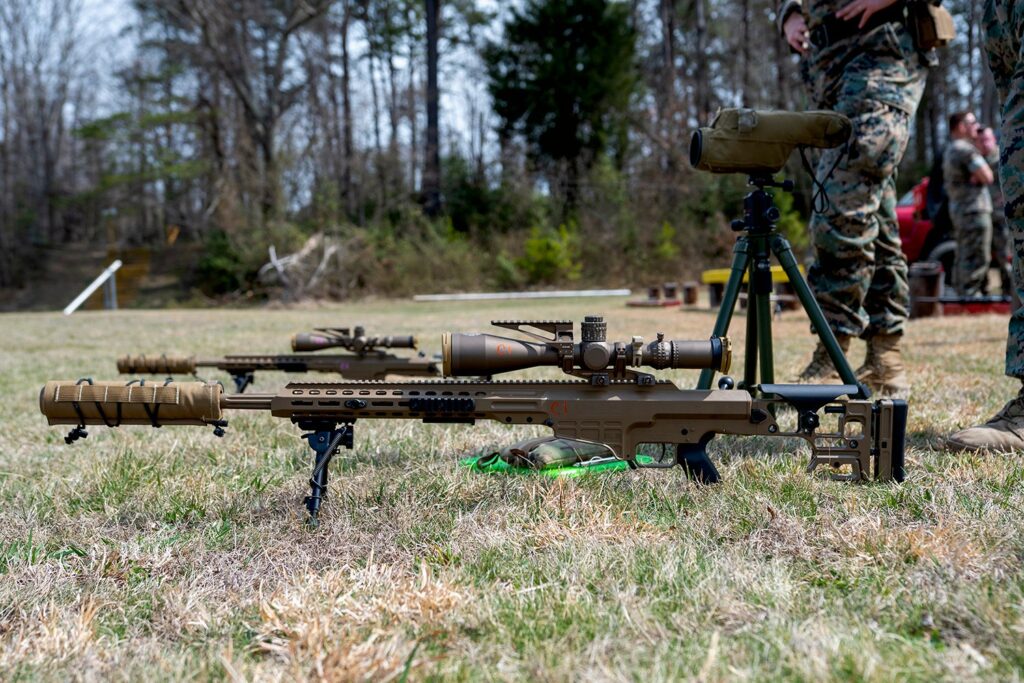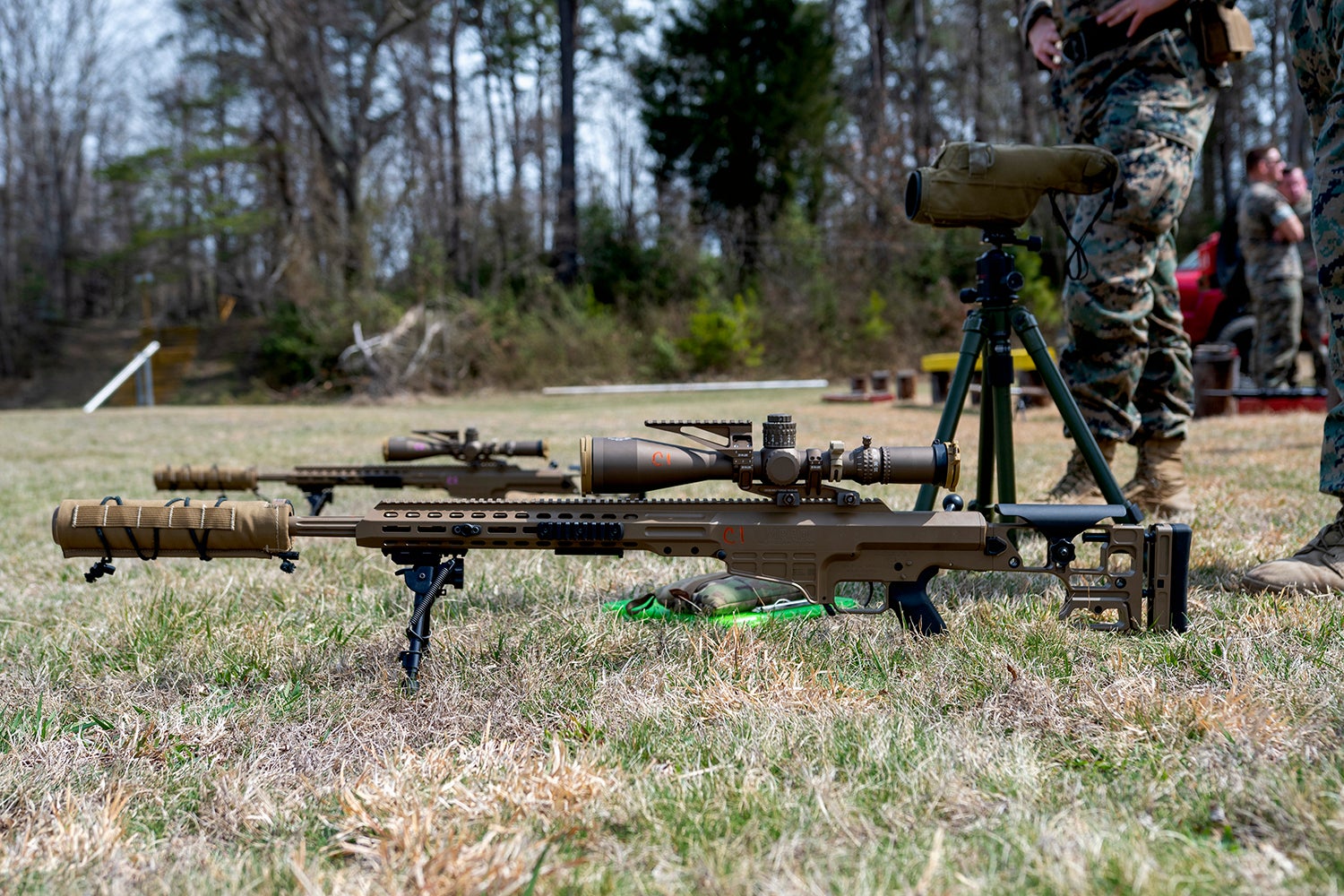
Civilian Sniper Rifles: A Comprehensive Guide for Responsible Marksmen
The world of precision shooting extends far beyond military and law enforcement applications. Civilian marksmen, competitive shooters, and hunting enthusiasts often seek the same level of accuracy and performance from their rifles. This article provides a comprehensive overview of civilian sniper rifles, exploring their features, capabilities, legal considerations, and responsible usage.
Understanding the Civilian Sniper Rifle
The term “sniper rifle” often conjures images of covert operations and long-range engagements. However, in the civilian context, these rifles are primarily used for target shooting, hunting, and precision sports. While the fundamental principles of accuracy and long-range capability remain the same, there are key differences in the application and legal restrictions surrounding civilian sniper rifles.
Defining Features
Civilian sniper rifles are generally characterized by the following features:
- High Accuracy: Sub-MOA (Minute of Angle) accuracy is a common benchmark, indicating the rifle’s ability to consistently group shots within a one-inch circle at 100 yards.
- Quality Barrel: Precision-machined barrels, often free-floated to minimize vibration, are crucial for consistent accuracy.
- Adjustable Trigger: A crisp, adjustable trigger allows for precise shot placement.
- Optics Mounting System: A stable and reliable mounting system is essential for attaching high-powered scopes and other aiming devices.
- Ergonomic Stock: A comfortable and adjustable stock helps the shooter maintain a stable and consistent shooting position.
- Caliber Selection: Popular calibers for civilian sniper rifles include .308 Winchester, 6.5 Creedmoor, and .338 Lapua Magnum, each offering different ballistic properties and effective ranges.
Popular Civilian Sniper Rifle Models
Several manufacturers produce high-quality rifles suitable for civilian precision shooting. Here are a few notable examples:
- Remington 700: A classic bolt-action rifle widely used and customized for various applications, including precision shooting. Many aftermarket parts and accessories are available for the Remington 700, making it a versatile platform for building a civilian sniper rifle.
- Savage Arms 110: Known for its accuracy and affordability, the Savage 110 series offers a range of models suitable for long-range shooting.
- Accuracy International AT: A high-end rifle designed for extreme accuracy and durability. While more expensive, Accuracy International rifles are known for their exceptional performance.
- Ruger Precision Rifle: A popular and relatively affordable option offering excellent accuracy and features for the price.
- Bergara B-14 HMR: Another well-regarded rifle offering a balance of accuracy, features, and price.
The Importance of Optics and Accessories
A high-quality rifle is only part of the equation. The optics and accessories used with a civilian sniper rifle are equally important for achieving optimal performance.
Optics
The scope is arguably the most critical accessory. Look for scopes with the following features:
- High Magnification: Allows for precise target acquisition at long ranges.
- Adjustable Parallax: Corrects for parallax error, ensuring accurate aiming at different distances.
- First Focal Plane (FFP) Reticle: The reticle subtensions remain constant regardless of magnification, simplifying range estimation and holdover calculations.
- Quality Glass: Provides a clear and bright image, even in low-light conditions.
Other Essential Accessories
- Bipod: Provides a stable shooting platform.
- Rear Bag: Supports the rear of the rifle for added stability.
- Rangefinder: Accurately measures the distance to the target.
- Ballistic Calculator: Helps calculate bullet drop and wind drift.
- Cleaning Kit: Essential for maintaining the rifle’s accuracy and reliability.
Legal and Ethical Considerations
Owning and using a civilian sniper rifle comes with significant legal and ethical responsibilities. It is crucial to understand and comply with all applicable laws and regulations.
Federal, State, and Local Laws
Firearms laws vary widely depending on location. Be sure to research and understand the laws in your area regarding ownership, storage, transportation, and use of rifles. Some jurisdictions may have restrictions on specific features, such as barrel length or magazine capacity. [See also: State Gun Laws: A Comprehensive Guide]
Responsible Gun Ownership
Safe gun handling practices are paramount. Always follow these guidelines:
- Treat every firearm as if it is loaded.
- Never point the muzzle at anything you are not willing to destroy.
- Keep your finger off the trigger until you are ready to shoot.
- Be sure of your target and what is beyond it.
Ethical Hunting Practices
If using a civilian sniper rifle for hunting, adhere to all hunting regulations and ethical hunting principles. Ensure you have a clear and ethical shot before taking it. Long-range hunting requires advanced skills and knowledge, including accurate range estimation, wind reading, and understanding of bullet ballistics. Practicing and refining these skills is essential for ensuring humane and ethical hunting. [See also: Ethical Hunting: A Guide for Responsible Hunters]
Developing Your Skills as a Precision Shooter
Mastering the art of precision shooting with a civilian sniper rifle requires dedication, practice, and a commitment to continuous learning.
Formal Training
Consider taking formal shooting courses from qualified instructors. These courses can provide valuable instruction on topics such as:
- Firearms safety
- Shooting fundamentals
- Ballistics
- Wind reading
- Range estimation
Dry Fire Practice
Dry fire practice (practicing without live ammunition) is an excellent way to improve your shooting technique and muscle memory. Focus on maintaining a consistent shooting position, trigger control, and breathing technique. [See also: The Benefits of Dry Fire Practice]
Live Fire Practice
Regular live fire practice is essential for refining your skills and validating your data. Start at shorter ranges and gradually increase the distance as your skills improve. Pay attention to your shot groups and make adjustments as needed. Keep a detailed log of your shooting data, including weather conditions, ammunition type, and scope settings. This data will help you fine-tune your rifle and improve your accuracy over time.
The Future of Civilian Sniper Rifles
The technology and design of civilian sniper rifles are constantly evolving. Advancements in materials, manufacturing techniques, and optics are leading to even more accurate and capable rifles. As technology advances, it’s crucial for responsible owners to stay informed about new developments and continue to prioritize safety and ethical use.
Conclusion
Civilian sniper rifles offer incredible precision and long-range capabilities for target shooting, hunting, and competitive sports. However, owning and using these rifles comes with significant responsibilities. By understanding the features, legal considerations, and ethical implications, and by committing to continuous learning and practice, civilian marksmen can enjoy the benefits of these rifles while upholding the highest standards of safety and responsibility. The key is to approach the discipline with respect, diligence, and a unwavering commitment to ethical and legal conduct. Remember that owning a civilian sniper rifle is a privilege, not a right, and it’s crucial to act responsibly to preserve that privilege for yourself and future generations. Choosing the right civilian sniper rifle also depends on your intended use and budget, so research and compare different models before making a purchase. The world of civilian sniper rifles is vast and rewarding for those who approach it with the right mindset. Investing in quality equipment and proper training will enhance your shooting experience and contribute to a safer and more responsible shooting community. Understanding the nuances of civilian sniper rifles, from their components to their ethical use, is paramount for any responsible owner.

